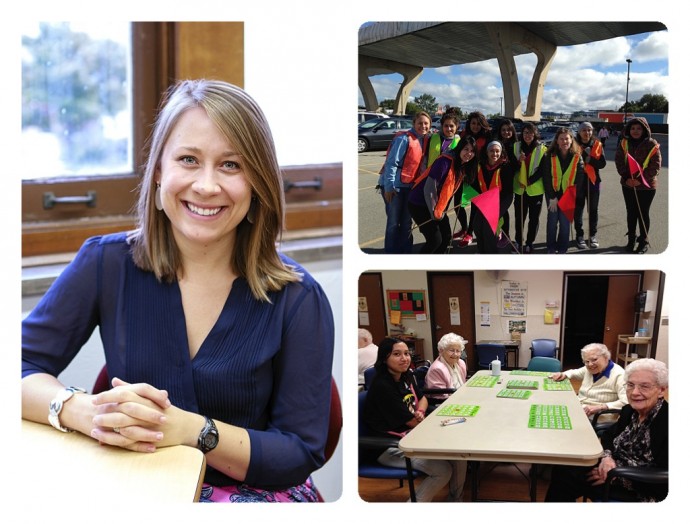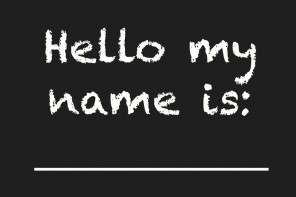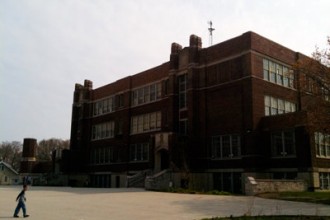In mid-October, five area teachers were honored by the Education Deans of Greater Milwaukee for their work in service learning, “… a form of experiential learning where students apply academic knowledge and critical thinking skills to address genuine community needs.”
Their projects – which range in scope from environmental activism to artistic expression and humanitarian assistance –clearly illustrate the impact teachers have upon both their students and the communities in which they teach.
We sat down with each award-winning teacher to find out more about what inspires them to engage with their students and their community in these powerful ways.
Mara Brandli of Carmen High School (South Campus) was honored with the Early Career Award for her work instilling a love of service throughout the Carmen community.
She developed the first community-service policy document, which has served to integrate service throughout the Carmen community, so it is a matter of culture rather than something the students have to do. She has developed training materials for teachers and parents, and encourages students to engage in meaningful conversations with peers and teachers on their community-service experiences. She builds and nurtures relationships with a number of community organizations introducing students to the elderly, homeless, and other marginalized communities.
Through service to a skilled-nursing home for retired School Sisters of St. Francis, students learned about the contributions of the School Sisters and took part in meaningful conversations, bonding over poetry, bingo, and other topics. Freshmen enjoyed their experience so much with a retreat center, they asked to be involved beyond the service-hour requirements, and Ms. Brandli worked to ensure the experience perpetuated.
Celebrate Teachers & Teaching: Was there a particular moment in your life when you knew you wanted to become a teacher?
Mara Brandli: Growing up, I remember pretending to be a teacher and a librarian in my parents’ basement with friends from the neighborhood. I can clearly recall writing on our miniature black chalkboard with dust flying almost everywhere, passing out homemade worksheets with a glittery sticker once corrected, and cataloging books by some organizational means – whether by genre, author, or subject, I cannot say. Yet, the thought of pursuing a degree in education definitely did not enter into my mind as a student in high school or even in college.
One of the best decisions that I made as a young adult was to attend Marquette University and major in Social, Political, and Legal Philosophy. Granted, I often found myself questioning the amount of focus placed squarely on theory and regularly pushed for a greater synthesis between theory and practice. I have always been a naturally curious person who likes to form her own conclusions about the truths of the world, and sometimes this curiosity leads me to take a critical approach when assessing the limitations of academia and research in general. In my mind, theory cannot adequately contribute to society unless it provides a platform for leaders to ground themselves on as they take ideas and constructively shape them in ways that actualize a more just world. As the Jesuits say, “faith seeking justice.”
When I was offered a teaching position at Carmen High School of Science and Technology a year after graduating from Marquette University, I did not realize that by accepting this position I would be creating a lifestyle that would allow theory and practice to meld into a cohesive whole. Teaching is philosophy in action, meaning that a teacher must constantly examine his/her practice as well as question all of the nuances of education as those layers relate to our place in a world that is very politicized. After examining and questioning, she, the teacher, must take this reflection and immediately apply her conclusions to the day-to-day realities of classroom management, instruction, and professional development. So, my moment of realizing that teaching was, and is, for me came serendipitously. Resulting from choices I made as an undergraduate and as a kid growing up, teaching found me, and I do not intend to let it go any time soon.
CTT: What are some of the positive transformations you’ve seen within your school and your students since implementing a service-learning curriculum?
MB: Service learning experiences are created by combining curriculum with real-world circumstances. In my English 10 British Literature classes, students are regularly practicing speaking and listening skills that align to the Common Core State Standards. My students and I have formed a truly wonderful relationship with the School Sisters of St. Francis at the St. Joseph’s Center, located in walking distance from Carmen High School. While playing Bingo with the Sisters, most of whom are retired teachers, my students need to speak and listen effectively in order to develop supportive relationships. Students who first attended Saturday Bingo as sophomores and were timid and soft-spoken are now attending Bingo for a third year as confident young adults who are comfortable projecting their voices so that the sisters are able to hear and process shared information or tips for winning Bingo (the Sisters’ competitive nature and kind humor inspires us every time we go!). A few weeks ago, one of my students who is fairly shy, volunteered to call the numbers during Bingo. I was amazed. Her self-directed decision to volunteer herself to be the reader in front of a group of twenty is a decision that she would not have made her sophomore year. Her decision is one example of the type of positive transformations that I have seen in my students.
CTT: How do you envision the lessons and skills students learn through service-learning projects translating into improvement within your community and/or the city of Milwaukee?
MB: I envision that the skills that students learn and practice through service-learning projects will improve our community and Milwaukee as a whole by dissolving boundaries that society has created. Examples of boundaries might include age, race, gender, socio-economic status, or ethnicity. Observing one of my students carrying on a very meaningful conversation with a Sister who was 104 years old and from a background different than my student’s allowed me to experience a profound sense of hope for the continuous development of solidarity in our community.
CTT: Have you observed any benefits beyond those that are academic-related for students who participate in service-learning projects? If so, can you describe them?
MB: Yes, absolutely I have observed benefits beyond those that are academic-related for students who participate in service-learning projects. Carmen High School is a mission-driven school in that our mission, Graduating students as critical thinkers and self-directed learners prepared for success in college, meaningful careers, community involvement and family life, drives all decisions and interactions. To support our mission-driven school culture during the day-to-day shuffle, three core values (respect, responsibility, and trust) bolster all policies and procedures. One value-related benefit that I have seen in my students is my students’ commitments to particulate service sites. For example, several students are totally committed to attending any and every Saturday Bingo. Saturday Bingo is their service site. To see such a sense of ownership in my students is inspiring! These students transfer their habits surrounding commitment back into the classroom, working to complete every homework assignment and really owning their learning processes.
CTT: What motivates you to continue pushing yourself (“keep calm, teach on”) as a teacher often faced with stressors unimaginable for those outside the teaching profession?
MB: Motivation comes easily when I work in a building that is filled to the brim with positive, mission-driven coworkers and administrators. I truly feel like the faculty, staff, and leadership team at Carmen move and breathe as a family unit. Moreover, I am constantly in awe of my students and their ability to manage incredible responsibilities at school and at home. In essence, collaborating with hard-working, kind, and resilient students and staff motivates me to keep pushing myself. Watching people accomplish goals that they never thought possible provides me with an infinite amount of energy along with a reason to believe that the true meaning of education, coming from the Latin word “educare” or “to lead out of,” can be experienced by anyone so long as a school has created a type of culture that embraces mistakes, chooses adults who model curiosity to be teachers and staff members, and encourages students to freely choose their future paths that are meaningful according to each student’s understanding of meaningful.


 i evaluate to yes even if there's no image
i evaluate to yes even if there's no image  i evaluate to yes even if there's no image
i evaluate to yes even if there's no image 